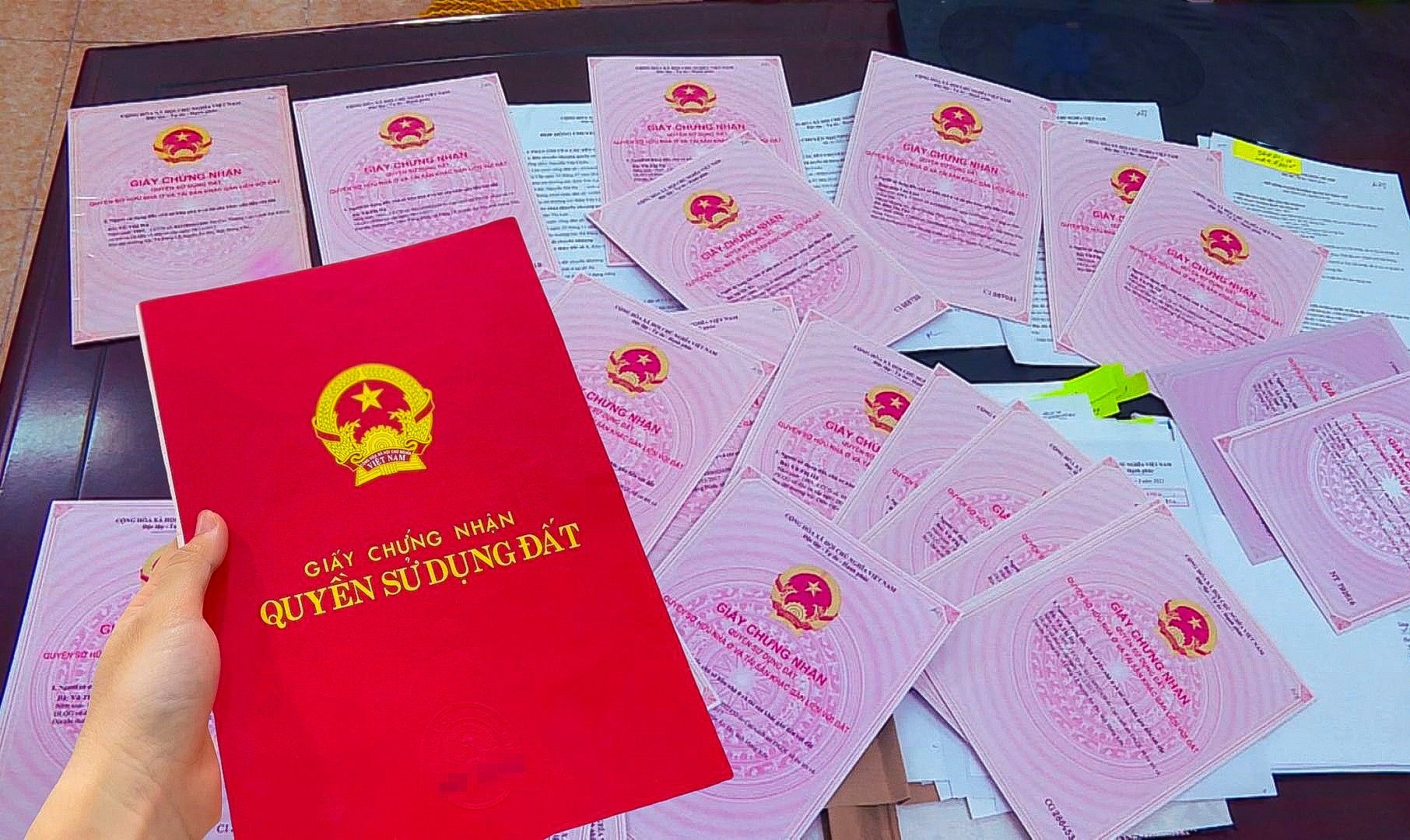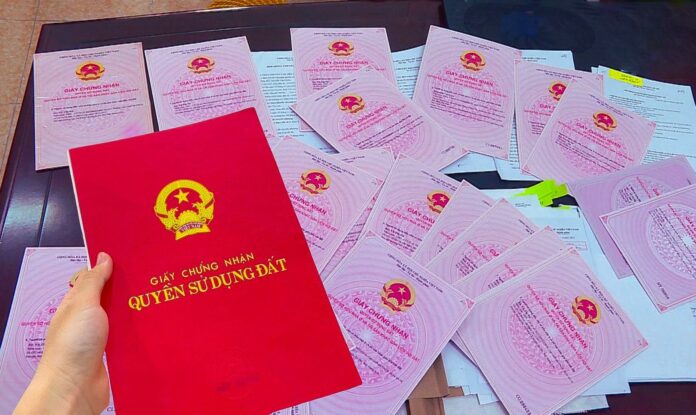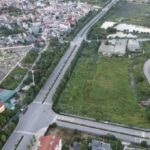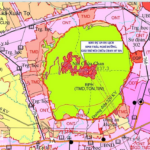In Vietnam, the term “so do” or “so hong” commonly refers to land use rights and ownership certificates. According to the Law on Land dated December 10, 2009, when eligible, land users will be granted a certificate with a standard format issued by the Ministry of Natural Resources and Environment (now the Ministry of Agriculture and Rural Development). This legal document is officially known as the “Land Use Right and Ownership Certificate.”
The issuance of the certificate is subject to the fulfillment of financial obligations by the land user or property owner, as stipulated by law. Among these obligations, the two most significant expenses to consider are the deed tax and land use fee.

Obtaining the certificate in 2025 could result in significant savings of up to hundreds of millions of dong. Illustrative image.
Deed Tax for Certificate Issuance
How is the deed tax calculated?
According to Decree 10/2022 and Circular 13/2022, the deed tax for certificate issuance is calculated using the following formula:
Deed Tax Payable = (Land Price per sq. m. from the Land Price Table x Area) x 0.5%
Where:
Land price per sq. m. for deed tax calculation is based on the land price table issued by the People’s Committee of provinces or centrally-run cities at the time of deed tax declaration.
The land area subject to deed tax is the total area of the land lot legally owned by the organization or individual, as determined and provided by the Land Registration Office to the tax authority. In other words, the area considered for deed tax calculation is the area for which the household or individual is granted the certificate.
Stable deed tax rate
Currently, provinces and cities maintain the land price tables without significant changes, except for a few cases where there have been increases.
Since the land price for deed tax calculation is based on the land price table issued by the provincial or municipal People’s Committee, and the deed tax rate remains unchanged at 0.5%, the deed tax amount for certificate issuance depends on the current land price table.
Land Use Fee for Certificate Issuance
When is the land use fee payable or exempt?
When households or individuals are granted the certificate (mainly through land use right recognition), the land use fee will fall into one of the following two cases:
Case 1: Exemption from land use fee
Case 2: Subject to land use fee
Basis and calculation method for land use fee
The calculation of the land use fee when obtaining the certificate is complex, but it is based on the land price table issued by the provincial or municipal People’s Committee or the specific land price if the area granted exceeds the limit.
On the other hand, the provinces and cities have already issued land price tables for the 2020-2024 period, so there is no fluctuation in land prices during this period.
Therefore, the land use fee for certificate issuance will remain stable as the 2020-2024 land price tables are still applicable, unless there are revisions or supplements to the tables by certain provinces or cities, which may involve increases until a new land price table is issued.
In addition to the above-mentioned expenses, individuals applying for the certificate also need to pay other fees, such as the certificate issuance fee, dossier evaluation fee, and personal income tax.
Why is it advantageous to obtain the Certificate in 2025?
Currently, there is a dual-price mechanism in the land market. One price is set by the state, which serves as a basis for calculating taxes or compensation for land clearance. The second price is the market price, which is often significantly higher than the state-regulated price.
However, from August 1, 2024, the 2024 Land Law will abolish the concept of land price frames and introduce annual land price tables. These new land price tables will be formulated based on zones, locations, and value areas, with reference to standard land lots (Refer to Article 159 of the 2024 Land Law).
Consequently, starting January 1, 2026, each province and centrally-run city will issue and apply a new Land Price Table, with adjustments, amendments, and supplements made annually instead of the current five-year revision cycle.
This change is expected to bring the new Land Price Table closer to market prices, potentially leading to a significant increase in land prices compared to the current table.
Among the fees payable for the first-time registration and issuance of the certificate, the following are calculated based on the land prices from the Land Price Table:
– Land use fee;
– Land rent (if any);
– Deed tax.
The land use fee is typically one of the most substantial expenses, often amounting to hundreds of millions of dong.
With the introduction of specific valuation methods and the annual adjustment of land prices to align with market values, it is likely that land use fees will increase in the future.
Consequently, the cost of obtaining the certificate for the first time is also expected to rise significantly from January 1, 2026.
Unlocking Pink Books: A Dialogue-Driven Approach to Resolving Issues for 8 Projects in Ho Chi Minh City
“Director of the Department of Agriculture and Environment in Ho Chi Minh City, Nguyen Toan Thang, took charge of facilitating dialogue on individual projects to resolve issues pertaining to long-standing delays in the issuance of land ownership certificates. The bottleneck was attributed to investors’ sluggish response to emergent issues, consequently impeding the process of granting certificates to homebuyers.”
Unlocking Pink Books: A Dialogue-Driven Approach to Resolving Issues for 8 Projects in Ho Chi Minh City
“Director of Agriculture and Environment of Ho Chi Minh City, Nguyen Toan Thang, took charge of resolving issues related to long-overdue pink book issuance for homeowners. Despite these problems persisting for years, the slow response from developers has caused a bottleneck in providing certificates to homebuyers. Thang directly intervened by addressing each project’s concerns individually.”
The Capital’s Consensus: Hanoi Approves 148 Experimental Residential Sites Through Agreements
The Hanoi People’s Committee has given the green light to a real estate business to pilot a project within the city boundaries, as per Resolution No. 171/2024/QH15.





















